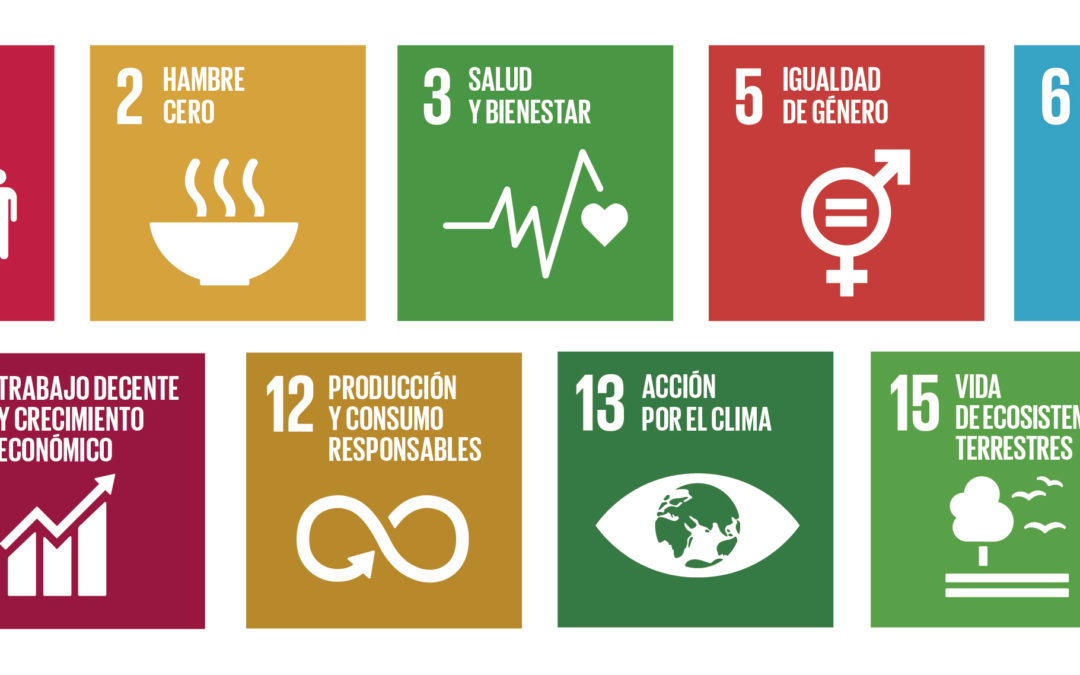Since 1992, the issues of development and the environment have been topics of discussion, starting with the United Nations Conference on Environment and Development, also known as the Earth Summit, held in Rio de Janeiro that same year. Afterwards the United Nations created the World Commission on Environment and Development (Estévez, 2017) through which it has been incorporating sustainable development issues, contributing to an improved quality of life for the most vulnerable people, reducing the environmental impacts generated by diverse economic activities worldwide, and establishing measures for equitable and equal incomes in groups with the least access to resources, aimed at eradicating extreme poverty. After assessing progress towards the Millennium Development Goals in the year 2015, world leaders set 17 Sustainable Development Goals (SDGs) in the 2030 Agenda for Sustainable Development (United Nations, 2015).
The broad aim of the 2030 SDGs is to make a global call to action for people worldwide to adopt measures that end poverty, protect the planet, and ensure that all people may enjoy peace and prosperity.
In light of the SDGs and the needs of the world’s most vulnerable populations, including the artisanal and small-scale mining sector (ASM), the Fairmined initiative was evaluated on the benefits that it generates specifically for those who implement the Fairmined Standard, as well as more broadly the contributions it makes towards accomplishing the 2030 Sustainable Development Goals.
After analyzing the benefits Fairmined Certification brings to the ASM gold sector, it was identified that the label’s requirements directly contribute to reaching nine out of the seventeen 2030 SDGs published by the United Nations (figure 1).
The general conclusions of the analysis of the 2030 SDGs are as follows:
- The Fairmined Standard is a tool that provides a good opportunity for the artisanal and small-scale mining sector, by promoting good labor, social, legal, and environmental practices, among others. In addition, it offers a fair price in exchange for fulfilling a series of requirements that demand effort, dedication, and will power, if looked at from the perspective of a lack of economic opportunities in the sector.
- Compliance with the Fairmined Standard helps create stable and decent employment under adequate safety conditions, providing the workers job stability that leads to a stable economy. The Standard’s requirements also enable workers to earn fair wages, higher than both the threshold for extreme poverty as defined by the United Nations and the monthly minimum wage set by Colombian regulations.
- Achieving compliance with the Fairmined Standard is an incentive and aid for the small-scale mining sector to fulfill the regulatory requirements they must implement in their mineral extraction, processing, and transformation processes, resulting in a formalization of their activity that benefits everyone involved.
- Sales of gold under the Fairmined Certification receive a price premium that positively impacts workers, their families, and the entire community that otherwise have scant resources. The premium goes towards paying higher incomes to employees and improving conditions of the mine and surrounding environment, in summary injecting additional funds that benefit the sector.
- Implementing the Fairmined Standard generates positive impacts for the region’s economy by creating a stable economic movement that improves conditions not only for the workers or miners, but also for commerce and transport in general across the municipality.
- Workers participating in the Fairmined Certification system receive adequate health coverage, so that they and their families can access medical care when needed, thus reducing mortality and morbidity rates in the region.
- The Fairmined Standard supports and promotes good labor practices that place workers as the priority. Adhering to the Standard means implementing various measures to protect workers’ health and maintain safe work sites that allow workers to adequately perform their job functions.
- The good practices of gender equality, non-discrimination, decent work, and protection of human rights are all promoted by the Fairmined Standard, which requires that they be implemented at the organizational level and internalized by each member involved in the certification process.
- The environmental actions promoted by the Fairmined Standard, such as the responsible use or complete elimination of mercury, responsible use of toxic substances, and implementation of environmental plans, builds awareness in the industry of the environmental impacts it can cause when carried out without any type of monitoring. Once awareness is raised, better environmental practices become implemented.
This analysis was performed based upon the experience of one ASMO, located in the municipality of La Llanada, Nariño, that has undergone implementation and certification through the Fairmined Standard since 2015.
Bibliography
Alliance for Responsible Mining – ARM. (April 5, 2014) Accessed on February 18, 2018. Retrieved from https://www.responsiblemines.org/nuestro-trabajo/estandares-y-certificacion/estandar-fairmined/.
Estévez, R. (June 29, 2017). www.ecointeligencia.com. Accessed on August 28, 2017. Retrieved from https://www.ecointeligencia.com/2017/06/historia-desarrollo-sostenible/.
United Nations. (2015). The 2030 Agenda for Sustainable Development.


 Figure 1
Figure 1